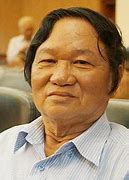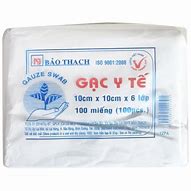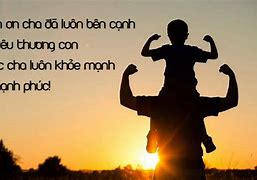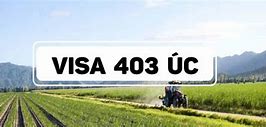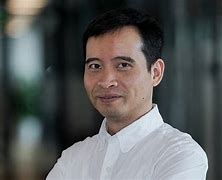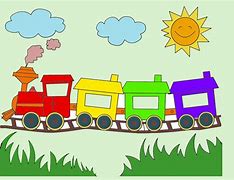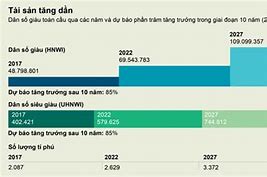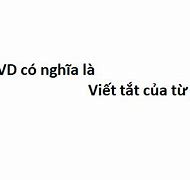
Những Bài Luận Xin Học Bổng Hay
Bài luận xin học bổng (Personal Statement) là một yếu tố cực kỳ quan trọng trong bộ hồ sơ xin học bổng đại học Mỹ cũng như các nước có nền giáo dục hàng đầu khác như Canada, Úc, Anh… Trong bài viết này, Anh Ngữ Du Học ETEST sẽ gửi đến bạn những bài luận xin học bổng du học hay và kinh nghiệm viết bài luận học bổng để giúp bạn đạt được kết quả tốt nhất.
Bài luận xin học bổng (Personal Statement) là một yếu tố cực kỳ quan trọng trong bộ hồ sơ xin học bổng đại học Mỹ cũng như các nước có nền giáo dục hàng đầu khác như Canada, Úc, Anh… Trong bài viết này, Anh Ngữ Du Học ETEST sẽ gửi đến bạn những bài luận xin học bổng du học hay và kinh nghiệm viết bài luận học bổng để giúp bạn đạt được kết quả tốt nhất.
Bài luận mẫu xin học bổng Planners and Searchers
Being African, I recognize Africa’s need for home- grown talent in the form of “planners” (assistants with possible solutions) and “searchers” (those with desperate need) working towards international development. I represent both. Coming from Zimbabwe my greatest challenge is in helping to improve the livelihoods of developing nations through sustainable development and good governance principles. The need for policy-makers capable of employing cross-jurisdictional, and cross- disciplinary strategies to solve complex challenges cannot be under-emphasized; hence my application to this scholarship program.
After graduating from Africa University with an Honors degree in Sociology and Psychology, I am now seeking scholarship support to study in the United States at the Master’s level. My interest in democracy, elections, constitutionalism and development stems from my lasting interest in public policy issues. Accordingly, my current research interests in democracy and ethnic diversity require a deeper understanding of legal processes of constitutionalism and governance. As a Master’s student in the US, I intend to write articles on these subjects from the perspective of someone born, raised, and educated in Africa. I will bring a unique and much-needed perspective to my graduate program in the United States, and I will take the technical and theoretical knowledge from my graduate program back with me to Africa to further my career goals as a practitioner of good governance and community development.
To augment my theoretical understanding of governance and democratic practices, I worked with the Zimbabwe Election Support Network (ZESN) as a Programs Assistant in the Monitoring and Observation department. This not only enhanced my project management skills, but also developed my skills in research and producing communication materials. ZESN is Zimbabwe’s biggest election observation organization, and I had the responsibility of monitoring the political environment and producing monthly publications on human rights issues and electoral processes. These publications were disseminated to various civil society organizations, donors and other stakeholders. Now I intend to develop my career in order to enhance Africa’s capacity to advocate, write and vote for representative constitutions.
I also participated in a fellowship program at Africa University, where I gained greater insight into social development by teaching courses on entrepreneurship, free market economics, and development in needy communities. I worked with women in rural areas of Zimbabwe to setup income-generating projects such as the jatropha soap-making project. Managing such a project gave me great insight into how many simple initiatives can transform lives.
Your organization has a history of awarding scholarships to promising young students from the developing world in order to bring knowledge, skills and leadership abilities to their home communities. I have already done some of this work but I want to continue, and with your assistance, I can. The multidisciplinary focus of the development programs I am applying to in the US will provide me with the necessary skills to creatively address the economic and social development challenges and develop sound public policies for Third World countries. I thank you for your time and consideration for this prestigious award.
Không dẫn vào bài luận bằng câu chuyện thời thơ ấu
Từ xưa đến nay, có rất nhiều bạn sử dụng câu chuyện thời thơ ấu để viện dẫn vào bài luận của mình. Chính những câu chuyện ấy khiến bạn trở nên kém chuyên nghiệp, chưa đủ trưởng thành và chưa đủ để họ tin tưởng. Sự bắt đầu sai lầm ấy khiến hội đồng cảm thấy nhàm chán, không hứng thú với bài luận văn xin học bổng của bạn
Nhiều bạn đã tham khảo sử dụng câu chuyện thời thơ ấu trong các bài luận của mình như một mở bài. Vì những câu chuyện này, bạn trở nên kém chuyên nghiệp, thiếu năng lực và đáng tin cậy hơn trong mắt họ. Hội đồng sẽ cảm thấy nhàm chán với các bài luận xin học bổng với mô típ như vậy
Tránh lạm dụng từ có tính chuyên môn cao
Luận án tìm kiếm học bổng không cần dùng các thuật ngữ chuyên môn cao. Việc lạm dụng từ vựng học thuật và sử dụng ngôn ngữ thông tục sẽ làm mất đi tính chuyên nghiệp và mất điểm cho bài luận của bạn. Hội đồng tuyển sinh họ đang cần hiểu cá tính, mục tiêu chứ không phải là những kiến thức mà họ đã biết.
Bài viết trên đã cung cấp đến bạn những bài luận mẫu xin học bổng hay, cách viết cũng như kinh nghiệm viết bài luận xin học bổng dành riêng cho mình. Nếu đang có dự định du học Mỹ và đặc biệt là xin học bổng du học nhưng chưa biết bắt đầu từ đâu, hãy để Anh Ngữ Du Học ETEST giúp bạn thiết kế lộ trình đặc biệt dành riêng cho mình thông qua khóa học AMP(Admission Mentoring Program) – viết luận săn học bổng.
Bước 1: Xác định đối tượng độc giả và yêu cầu của bài luận
Mặc dù việc xác định các tiêu chí của bài luận là cần thiết, nhưng việc nghiên cứu và phân tích độc giả cũng quan trọng không kém. Hội đồng tuyển sinh của trường chính là độc giả cần hướng đến. Các bài luận xin học bổng hay thường nêu rõ những yêu cầu của trường đưa ra từ đó, thể hiện cá tính riêng của họ trong khi vẫn đảm bảo phù hợp với chủ đề.
Bài luận xin học bổng mẫu The Book that made Me a Journalist
It is 6 am on a hot day in July and I’ve already showered and eaten breakfast. I know that my classmates are all sleeping in and enjoying their summer break, but I don’t envy them; I’m excited to start my day interning with a local newspaper doing investigative journalism. I work a typical 8-5 day during my summer vacation and despite the early mornings, nothing has made me happier.Although it wasn’t clear to me then, looking back on my high school experiences and everything that led to me to this internship, I believe this path began with a particularly savvy teacher and a little book she gave me to read outside of class.
I was taking a composition class, and we were learning how to write persuasive essays. Up until that point, I had had average grades, but I was always a good writer and my teacher immediately recognized this. The first paper I wrote for the class was about my experience going to an Indian reservation located near my uncle’s ranch in southwest Colorado. I wrote of the severe poverty experienced by the people on the reservation, and the lack of access to voting booths during the most recent election. After reading this short story, my teacher approached me and asked about my future plans. No one had ever asked me this, and I wasn’t sure how to answer. I said I liked writing and I liked thinking about people who are different from myself. She gave me a book and told me that if I had time to read it, she thought it would be something I would enjoy. I was actually quite surprised that a high school teacher was giving me a book titled Lies My Teacher Told Me. It had never occurred to me that teachers would lie to students. The title intrigued me so much that on Friday night I found myself staying up almost all night reading, instead of going out with friends.
In short, the book discusses several instances in which typical American history classes do not tell the whole story. For example, the author addresses the way that American history classes do not usually address about the Vietnam War, even though it happened only a short time ago. This made me realize that we hadn’t discussed the Vietnam War in my own history class! The book taught me that, like my story of the Indian reservation, there are always more stories beyond what we see on the surface and what we’re taught in school. I was inspired to continue to tell these stories and to make that my career.
For my next article for the class, I wrote about the practice of my own high school suspending students, sometimes indefinitely, for seemingly minor offenses such as tardiness and smoking. I found that the number of suspensions had increased by 200% at my school in just three years, and also discovered that students who are suspended after only one offense often drop out and some later end up in prison. The article caused quite a stir. The administration of my school dismissed it, but it caught the attention of my local newspaper. A local journalist worked with me to publish an updated and more thoroughly researched version of my article in the local newspaper. The article forced the school board to revisit their “zero tolerance” policy as well as reinstate some indefinitely suspended students. I won no favors with the administration and it was a difficult time for me, but it was also thrilling to see how one article can have such a direct effect on people’s lives. It reaffirmed my commitment to a career in journalism.
This is why I’m applying for this scholarship. Your organization has been providing young aspiring journalists with funds to further their skills and work to uncover the untold stories in our communities that need to be reported. I share your organization’s vision of working towards a more just and equitable world by uncovering stories of abuse of power. I have already demonstrated this commitment through my writing in high school and I look forward to pursuing a BA in this field at the University of Michigan Ann Arbor. With your help, I will hone my natural instincts and inherent writing skills. I will become a better and more persuasive writer and I will learn the ethics of professional journalism.
I sincerely appreciate the committee’s time in evaluating my application and giving me the opportunity to tell my story. I look forward to hearing from you soon.

